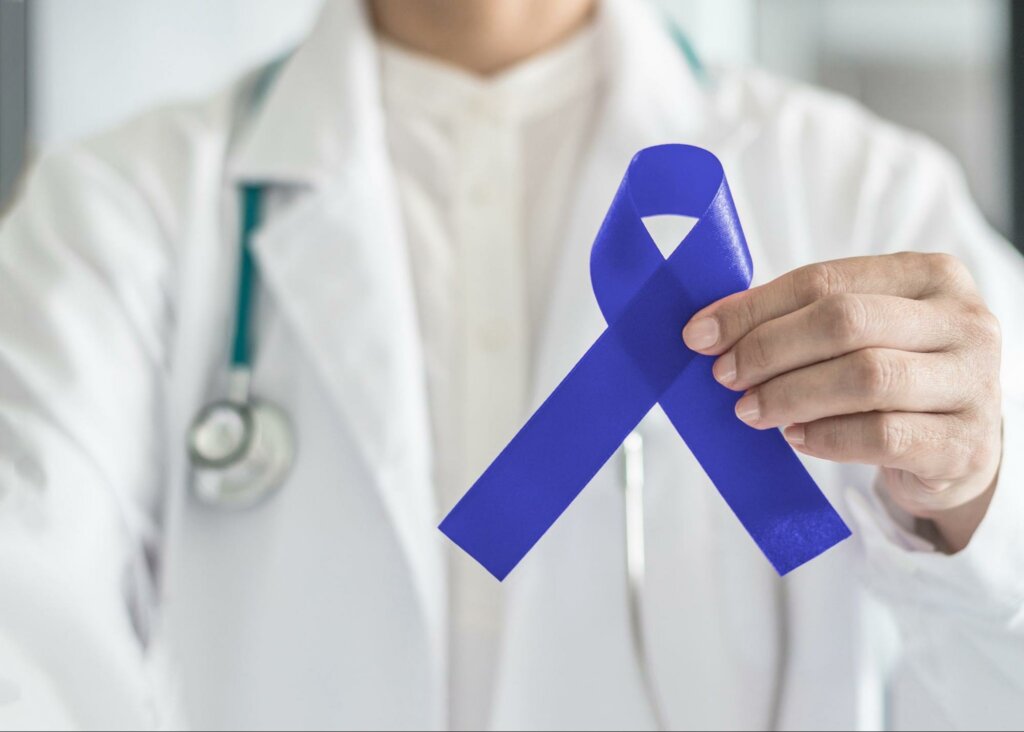7 Facts About Colorectal Cancer

March is Colorectal Cancer Awareness Month, a time in the year to recognize a national health initiative to educate and promote the importance of regular screening for colorectal cancer. Because of the ongoing COVID-19 pandemic, colorectal cancer screenings have nosedived over the last two years, making this year one of the most vital to spread the word and get screenings back on track.
Colorectal cancer is one of the most deadly cancers
A startling fact about colorectal cancer is that it’s the second-leading cause of cancer-related deaths in both men and women in the United States. According to research from the CDC and the American Cancer Society, there are an estimated 104,610 new cases of colon cancer and 43,340 cases of rectal cancer diagnosed in the US, and an estimated 53,200 people will succumb to colorectal cancer.
It is also one of the most preventable types of cancer
Most colon cancer starts in polyps, which are small growths that form in the lining of the colon and rectum. These polyps grow over time, ultimately transforming into cancer, but fortunately, they can be easily detected and removed with early screening.
Colorectal cancer affects both men and women
While men are more likely to get colon cancer at an earlier age than women, both sexes are at a 4-5% risk of developing colorectal cancer in their lives. The risk of developing colon cancer increases with age. Although developing colorectal cancer is possible for all races and ethnicities, African-Americans are at a higher risk.
Colorectal cancer does not always show symptoms
Another troubling fact about colorectal cancer is that a person can have colorectal cancer in many cases and still feel completely healthy. Some symptoms exist, but they tend to be subtle and only surface in later stages. The most commonly reported symptoms include fatigue, weakness, weight loss, abdominal pain, and rectal bleeding. The best way to assess your risk of colorectal cancer is through early screening.
It is a type of cancer that can be inherited
Family history plays a significant role in your risk of colorectal cancer. In fact, those who have had family members who have had colon cancer are two to five times more likely to have colon cancer. In some cases, people may inherit colon cancer syndromes that increase their risk of developing colon cancer by nearly 100%. Genetic testing combined with early and regular screening can help you keep track of your health as it relates to colon cancer.
Colonoscopies can save lives
While there are many different types of early detection and screening tests, a colonoscopy is the most effective method for detecting colorectal cancer. More than just being the most effective, a colonoscopy is also the only way to get a look at the entire colon and remove pre-cancerous polyps. Colonoscopies also boast some impressive statistics: according to the American College of Gastroenterology, colon cancer risk is reduced by 90% after colonoscopy and polyp removal. Not only this, but the 5-year survival rate after the initial detection and treatment of early-stage colon cancer can be as high as 90%.
There are additional steps you can take to lower your risk of developing colorectal cancer
Without a doubt, early detection and screening is the most essential step in preventing colorectal cancer, but that’s not to say there aren’t additional lifestyle choices you can make to lower your risk. Eating a healthy diet full of fruits and vegetables and low in fat is vital to living well and reducing your risk of many different diseases and illnesses. In addition, avoiding tobacco and excessive alcohol use and engaging in regular physical activity help to lower your risk of colorectal cancer.
Consult a Gastroenterologist
If you are 45 years old or older or have any high-risk factors that increase your likelihood of developing colorectal cancer, set up an appointment at Birmingham Gastroenterology. Our team has decades of experience treating diseases and disorders in all parts of the digestive system. For more information, just out our informational video: Colon Cancer Essentials. To discuss your risk factors and screening options, call us at (205) 271-8000.

